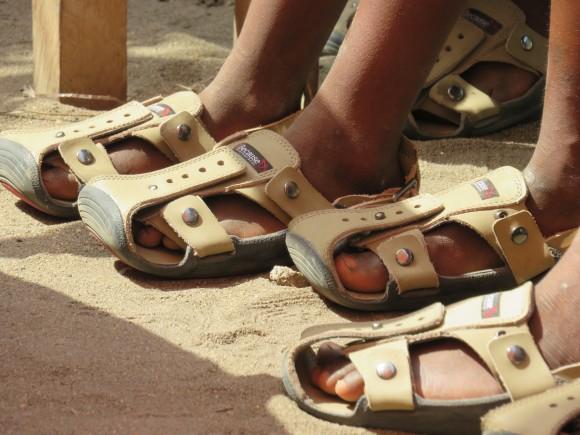Kenton Lee used to work in Nairobi, Kenya. One day, back in 2007, he saw a little girl wearing a pretty white dress, but he noticed she was wearing shoes that were way too small for her.
He wondered if there could be a shoe with an adjustable size. After all, a good pair of shoes would make a big difference for hundreds of millions of poor children, protecting them from foot injuries and infections.
Some 1.5 billion people worldwide suffer from a soil-transmitted parasitic infection, according to the World Health Organization.
Lee tried to build a few prototypes of an expandable shoe and reached out to shoe companies, but with no success. Still, he didn’t let go of the idea.
With a small team of enthusiasts, he contacted a shoe prototyping firm in Oregon called Proof of Concept, and by 2014 they had a prototype ready for production—The Shoe That Grows.





